18+ Self Evaluation Sample Essay
-
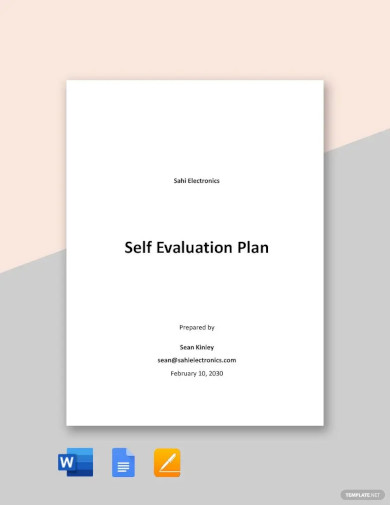
Self-Evaluation Plan Template
download now -
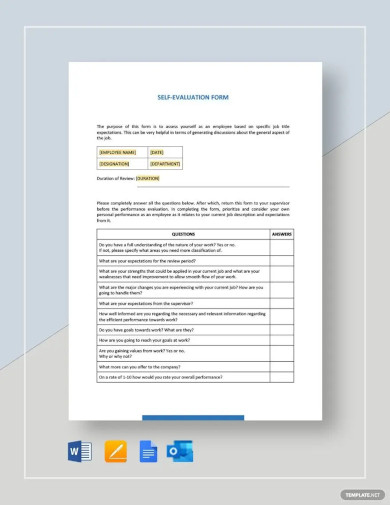
Self Evaluation Form Template
download now -
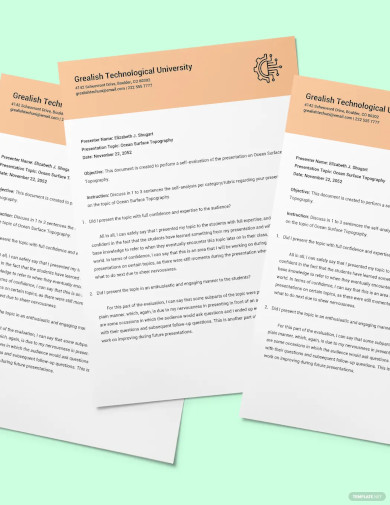
Lesson Self-Evaluation Sample
download now -
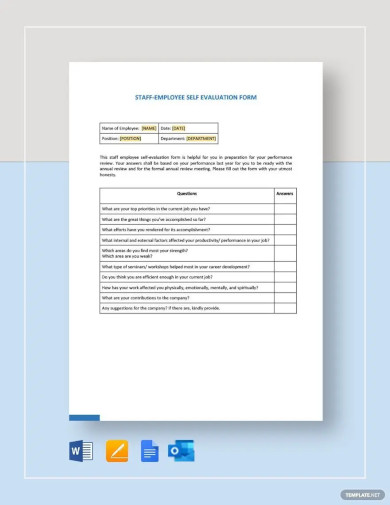
Staff Employee Self-Evaluation Template
download now -

Self Introduction Essay for Teacher
download now -
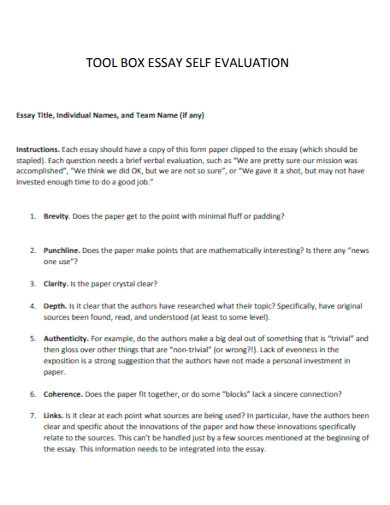
Tool Box Essay Self Evaluation
download now -
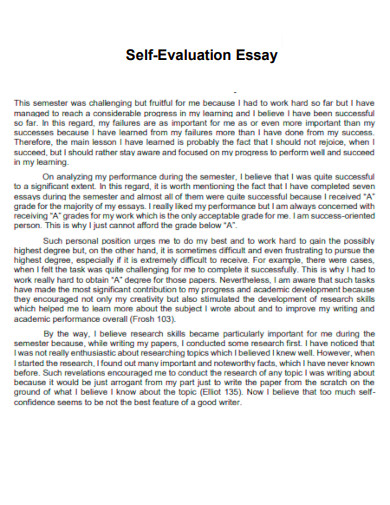
Simple Self-Evaluation Essay
download now -
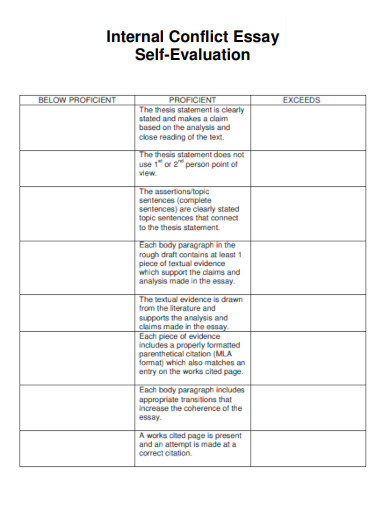
Internal Conflict Essay Self-Evaluation
download now -
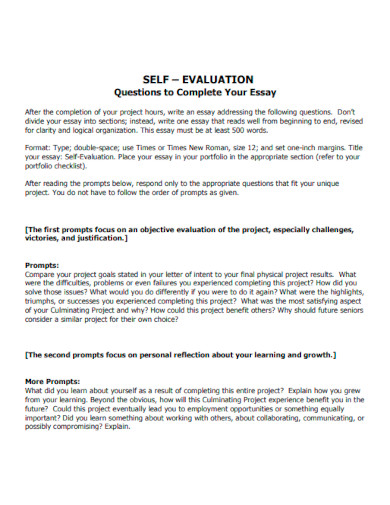
Self-Evaluation Questions to Complete Your Essay
download now -
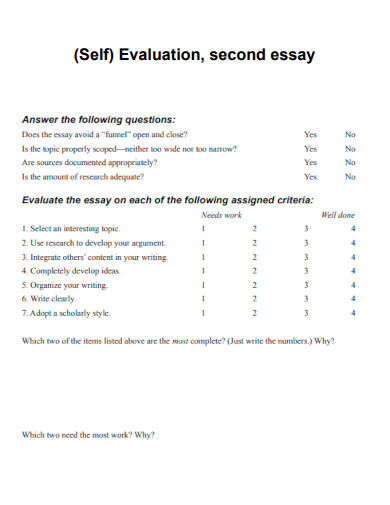
Self Evaluation Second Essay
download now -
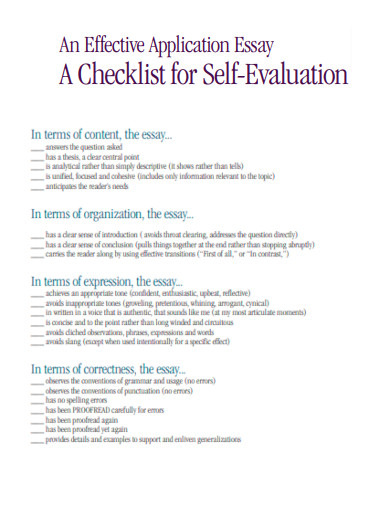
Application Essay Checklist for Self Evaluation
download now -
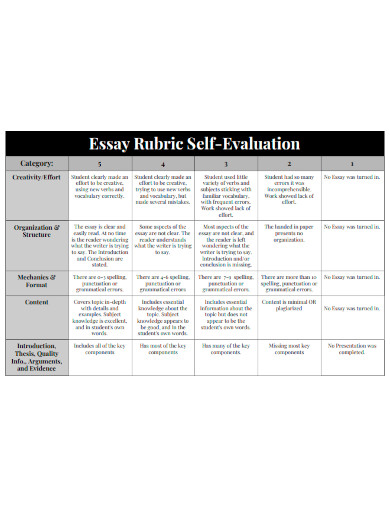
Essay Rubric Self Evaluation
download now -

Student Personal Color in Self-Evaluation Essay
download now -
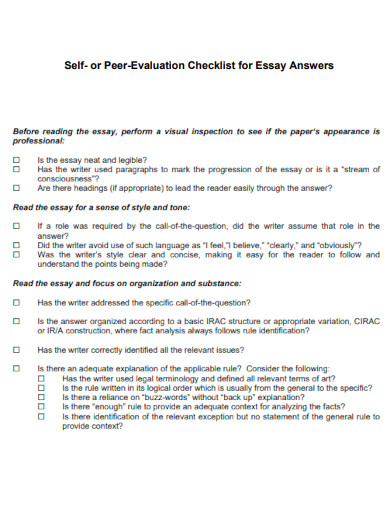
Self Evaluation Checklist for Essay Answers
download now -
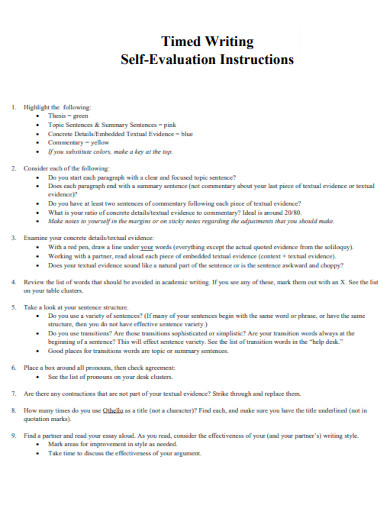
Timed Writing Self-Evaluation Instructions Essay
download now -
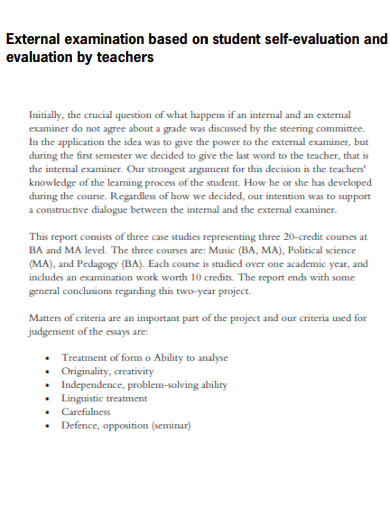
Student Self-Evaluation Essay
download now -
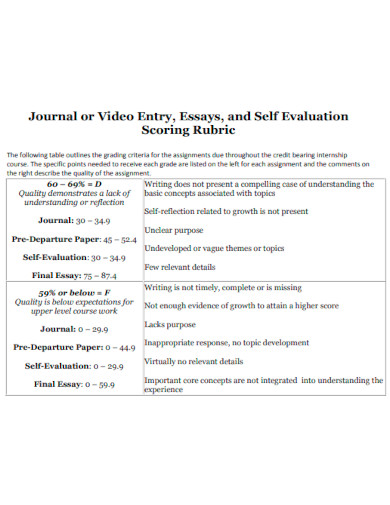
Self Evaluation Essay in PDF
download now -
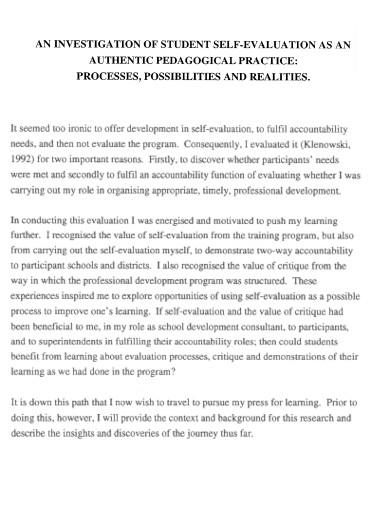
Self-Evaluation Essay Investigation
download now -
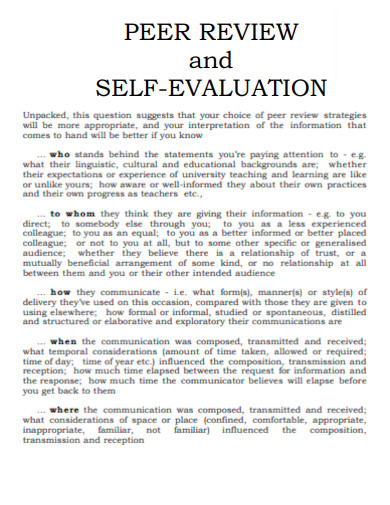
Peer Review Self-Evaluation Essay
download now
FREE Self Evaluation Essay s to Download
18+ Self Evaluation Sample Essay
What Is Self-Evaluation?
Benefits of Self Evaluation
Tips to Make Effective Self-Evaluations
How to Write a Self-Assessment Essay
FAQs
How long should a self-evaluation be?
Can I introduce myself by saying myself?
How do students self-evaluate?
What Is Self-Evaluation?
Self-evaluation is the process of systematically observing, analyzing and enhancing your actions in the workplace to achieve improved results. Self-evaluation assessments require you to assess your professional contributions to the workplace to determine your position within the organization. Individuals can evaluate their progress by comparing their performance on multiple assessments. Self-evaluation entails examining one’s strengths and weaknesses and posing basic queries about one’s position within a company. Many companies favor self-evaluation because it places employees in command of their development and encourages them to consider their contributions critically.
Benefits of Self Evaluation
Many employees can benefit from self-evaluation assessments. These benefits range from increased employee motivation to improved goal planning. Detailed below are some benefits of the self-evaluation method:
Tips to Make Effective Self-Evaluations
When conducting a self-evaluation evaluation, employees use various methods and metrics to determine their strengths and limitations. You must adhere to specific procedures to ensure your self-evaluations are the most effective. Examples of best practices include:
1. Determine the Objective of the Evaluation.
Ask your supervisor or manager how they intend to utilize your self-assessment evaluation. The manager may intend to use them to determine internal promotions and incentives. Knowing the purpose of the self-evaluation enables you to make more informed decisions regarding the tone to use and how your responses will impact your career.
2. Plan Your Career Path
Self-evaluations allow ruminating on your career, not just your current position. Determine how your current situation works in your long-term career plans and what you can do to advance to the next level using your evaluation. Managers are more likely to consider you for relevant advancement opportunities in the future and to implement training programs that will help you achieve your goals if they are aware of your career goals. Creating a career map also ensures you have clear and measurable expectations for the future.
3. Explain How You Will Address Your Shortcomings
You must complement your shortcomings with measures you intend to take to mitigate them. Utilize developmental language to convey that you are mindful of your limitations and are committed to enhancing your performance in certain areas. For instance, you may need more technical skills when working on digital initiatives. You can indicate on your self-evaluation form that your objective is to take advanced courses in digital formats and coding to expand your knowledge in this area.
4. Stay Positive
Please include a list of your positive contributions and how the company has contributed to them in your self-evaluation assessment. Ensure that these positive comments outweigh your areas for improvement section to emphasize your value to the organization. In addition, you must not use your areas for enhancement section to criticize other employees, managers, or business partners. This needs to be more professional and may result in adverse outcomes. Also, seeking guidance and direction from your supervisors is an excellent method to show your commitment to improvement. It also helps establish a schedule for ongoing review and evaluation. Remember that your performance affects managers and the business, so your supervisors are more than willing to provide you with advice and counsel as needed.
5. Ask For Training
Specify which training opportunities you believe would be beneficial to your personal development. This demonstrates to managers that you are aware of the direction you wish to develop in and have a real plan for achieving it. Consider requesting specific training opportunities, the chance to attend particular conferences, or the opportunity to conduct group exercises at work. Also, ensure that your self-evaluation promotes an open dialogue for more meaningful discussions with your supervisor or manager. You can accomplish this by identifying how your performances contribute to the business and requesting supervisor feedback. They may want you to devote more attention to a specific aspect of your job or use your successes to instruct others failing in the same area.
How to Write a Self-Assessment Essay
Self-evaluation is a difficult task despite its significance. Self-analysis can be extremely challenging, mainly when submitted to a supervisor for review. These five steps will help you know how to write a self-evaluation essay if you struggle to begin.
1. Be Proud
One of the primary objectives of the self-evaluation is to emphasize your accomplishments and recall critical moments in your professional growth. A good self-evaluation should highlight tasks and initiatives showcasing your work. To underscore their value to the organization, employees should emphasize the impact these accomplishments had on the entire business when describing them. If your manager needs to reach a certain number, explain how you contributed to getting that number. Your inventory of accomplishments should align with your organization’s objectives.
2. Be Honest and Critical
Self-evaluations are not solely about highlighting achievements. You should also evaluate critically the instances in which you feel lacking. Being truthful necessitates revealing flaws that could be improved or past failings that taught you a valuable lesson. Acknowledging your faults to demonstrate your capacity to learn and develop is essential. Also, it is necessary to avoid stagnation during self-evaluations; humans are continuously learning and evolving (which is why adaptable, resilient teams are imperative and prevalent). Whether you had a successful year or fell short of your expectations, remaining committed to self-improvement and education is critical. During a self-evaluation, listing your aims and objectives for the upcoming year demonstrates that you are not willing to settle.
3. Track Your Achievements
Self-evaluations should always be active; humans are constantly learning and evolving (which is why adaptable, resilient teams are essential and prevalent). Whether you had a successful year or fell short of your expectations, remaining committed to self-improvement and education is necessary. During a self-evaluation, listing your aims and objectives for the upcoming year demonstrates that you are not willing to settle. Additionally, managers will view a willingness to develop and accept new responsibilities as a form of coachability. If an employee’s performance has been subpar, allowing room for improvement could enhance it. A successful employee, on the other hand, requires growth opportunities to avoid monotony and stagnation. During a self-evaluation, list your aims and objectives for the upcoming year to demonstrate that you are unwilling to settle.
4. Be Professional
Always maintain professionalism when composing self-evaluations. This includes refraining from criticizing the supervisor for poor leadership or coworkers for making your life more difficult. It also involves abstaining from gushing about a coworker or manager you like. Whether you are offering constructive or negative feedback reports, professionalism is essential. Being professional entails giving the evaluation the same consideration as any other significant undertaking that crosses your desk.
FAQs
How long should a self-evaluation be?
There is no predetermined duration for self-evaluation, but providing at least several sentences for each accomplishment report and focus area is generally advised. Anything beyond two paragraphs may indicate indecision or excessive explanation. Each response should be concise, quantitative, and reflective.
Can I introduce myself by saying myself?
Since myself is a reflexive pronoun, it cannot be used as a subject when introducing yourself. In other words, it also demonstrates conceit, which is inappropriate when introducing oneself to others. Research shows that having students create a reflective journal about their learning and accomplishments is a logical method to engage them in self-assessment because it provides them and their assessors with insight into their understanding. In the reflective morning journal assignment, include their ideas on enhancing their performance.
How do students self-evaluate?
Having students create a reflective journal about their learning and accomplishments is a logical method to engage them in self-assessment because it provides them and their assessors with insight into their understanding. In the reflective journal assignment, include their ideas on enhancing their performance report.
Self-evaluation does not have to be a fearful task. You will astound yourself if you organize yourself beforehand, collect statistics whenever possible, and emphasize the positive and the developmental checklist. In addition, you will benefit from reflecting on the year in a manner that acknowledges your achievements and guides you toward self-improvement.
